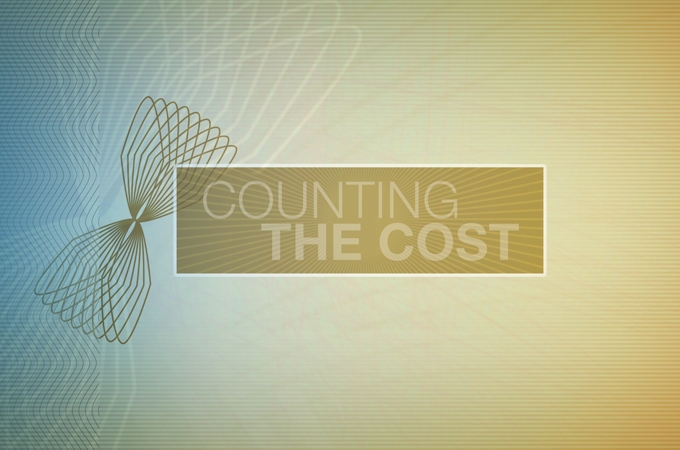
Greece’s hidden riches
Brimming with oil and gas reserves, the country may be able to pay its debt by tapping into these natural resources.
Hundreds of billions of dollars worth of oil and gas are believed trapped under the seabed around Greece – enough to wipe out the country’s debt for good.
But can they get to it? And who else is looking to get their hands on the energy bonanza?
Keep reading
list of 4 itemsWhy are nations racing to buy weapons?
Parallel economy: How Russia is defying the West’s boycott
US House approves aid package worth billions for Ukraine, Israel
Some experts say the recent discoveries of oil and gas in the Aegean Sea could turn the entire region into the ‘New Gulf’. But where there is oil, there is usually some sort of conflict.
The country believes that it has at least $600bn worth of gas and oil reserves.
And the US Geological Society estimates there are around 22 billion barrels of oil in the Ionian Sea, off western Greece, and another 4 billion barrels in the northern Aegean Sea.
Turkey also has oil and gas in the area – its total reserves are estimated at about 20 trillion cubic feet.
There is an estimated 7 billion cubic feet of natural gas off the shore of the Greek-held part of Cyprus. In fact the eastern Mediterranean – surrounded by Israel, Lebanon, Syria and Cyprus – holds an estimated 1.7 billion barrels of oil and 122 trillion cubic feet of gas – enough to supply the world for a year.
Meanwhile, Israel has 33 trillion cubic feet of gas, which is worth about $670bn.
We look at how Greece may cancel its debt by tapping into these natual resources.
Reforming Mexico’s oil industry
Everybody loves a celebration, and around this time each year, Mexicans have got a fairly unique one.
Each year on March 18, Mexicans honour the decision taken in 1938, by President Lazaro Cardenas, to nationalise the oil industry. And his legacy continues in a way, because the industry remains closed off to foreign investors.
However, Enrique Pena Nieto, the country’s current president, says it is time to reform and modernise the country’s oil industry, and sees it as key to improving the economy. But the president’s proposals are meeting resistance.
Mexico is among the world’s top oil producing nations but it has been closed off to foreign investment for decades.
Pena Nieto campaigned on a promise to increase exploration by opening up the oil industry to private investment. But getting the reform passed in Congress will not be easy. His opponents claim it is an attempt to privatise the oil sector.
Emilio Lozoya, the 38-year-old CEO of Pemex, tells us how he is shaking things up at Mexico’s state-owned oil company.
Dubai’s towering ambitions
It is home to the world’s tallest building and one of the most spectacular financial collapses. So, can Dubai really regain its former glory or will debt once again be its downfall?
No one could blame investors for being cautious – the last boom which peaked in 2007 – went spectacularly wrong. The Emirate seemed to think property prices would never stop rising.
State-owned Dubai World borrowed billions to keep building but when the recession came, property prices collapsed and Dubai was pushed to the brink of bankruptcy.
Abu Dhabi, Dubai’s bigger, richer brother stepped in with a massive loan, buying Dubai time. And since then, Dubai World and other companies have restructured their debts, convincing banks and other investors to write-off some of the loans.
And now there are signs of growth.
Dubai expects its economy to grow more than four percent this year, thanks largely to a recovery in the property market, and to tourism. In fact about 9 million tourists visit the Emirate every year. Earnings from hotels and restaurants are rising sharply.
And property prices – which fell 50 percent between 2007 and 2011 – are moving up, partly due to a flood of foreign investment.
So Dubai’s confidence is swelling again. It plans to build the world’s biggest shopping mall – even though it already has that – five theme parks and a $1bn replica of the Taj Mahal.
But there is still a problem – debt.
The International Monetary Fund (IMF) predicts Dubai’s government-linked entities have to pay about $40bn worth of debt this year and next – yet investors are still lending to Dubai.
So is Dubai’s comeback for real? And is now actually a good time to invest?
Counting the Cost discusses with His Highness Sheikh Maktoum Hasher Al Maktoum, a member of Dubai’s ruling family and executive chairman of Shuua Capital, a Dubai-based investment covering the GCC.
Watch each week at the following times GMT: Friday: 2230; Saturday: 0930; Sunday: 0330; Monday: 1630. Click here for more Counting the Cost. Follow Kamahl Santamaria @KamahlAJE and business editor Abid Ali @abidoliverali |
